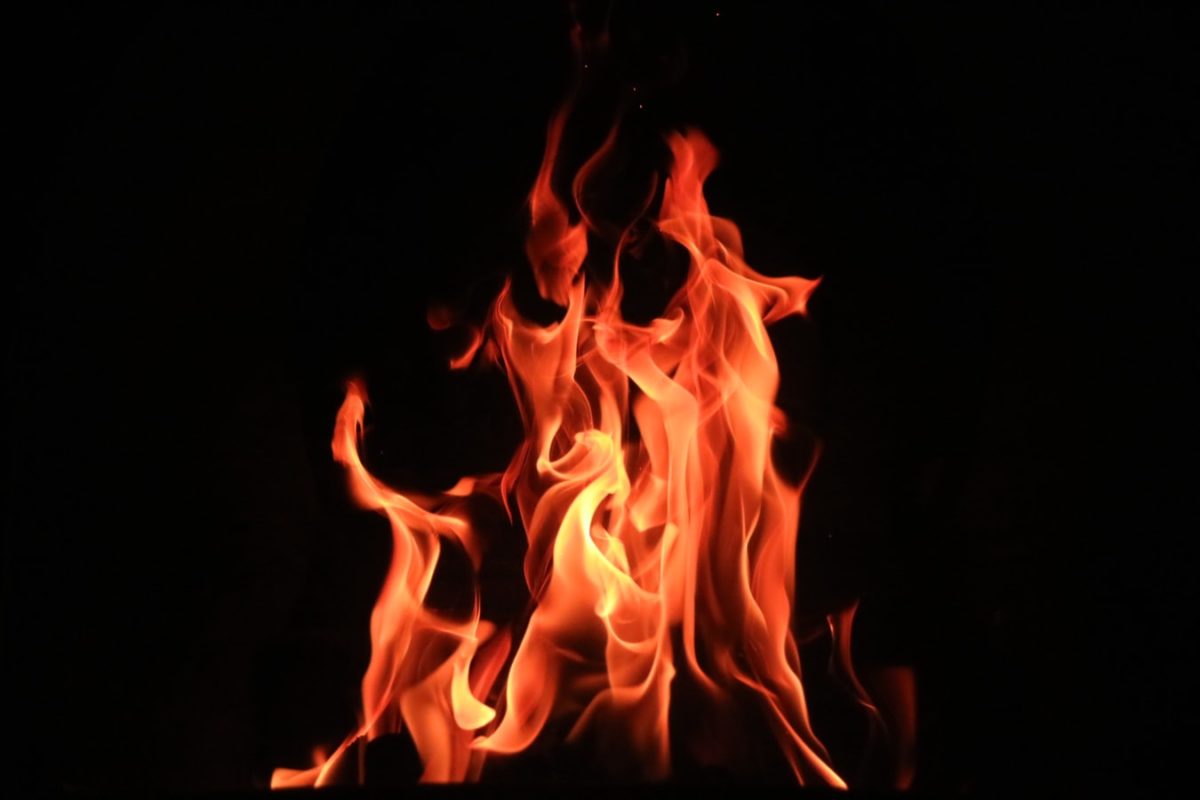Contemplation of God’s holiness can be terrifying. When we meditate on the blazing purity, the uncompromised integrity, the sinlessness of an all-powerful God who is also the judge of the earth, seeing our impure selves in the light of his presence is frightening. We read and, in some small measure, can identify with the story of Isaiah in the Temple, who, seeing YHWH enthroned and hearing the seraphim crying, “Holy, Holy, Holy,” proclaimed his desperate grief at his undone-ness because of his impurity (Isa 6.1-7).
God’s holiness is dangerous; so dangerous that during the time before Christ, he kept his people from it through distance and a veil. His purity destroys all impurity. It would seem that his holiness would not be an encouragement to worship, to draw near to him, but rather a reason not to do so. Who wants to be shamed and then destroyed? Yet there is something attractive to us about God’s holiness; something that draws us in like a moth to a flame; something so beautiful about it that, despite the pain we experience through seeing our deep impurities and dissatisfactions it reveals about us, we are drawn to it.
We are drawn to God’s holiness because we were made in his holy image and, therefore, our deepest longings are to be one with him in holiness. When our desires are rightly ordered, when we long to be truly human, holiness is home.
God’s holiness, especially as a reason to worship him, is a theme that runs through Psalm 99. The Psalmist calls for God’s people (and we call one another through singing it as a congregation) to praise God’s name: Holy is he! (3) We exalt Yahweh our God, worshiping at his footstool: Holy is he! (5) The Psalm concludes with the exhortation once again to exalt Yahweh our God and worship at his holy mountain; for Yahweh our God is holy. (9) We who are holy ones, saints, share in his holiness, desiring to be holy and that the entire created order share in that holiness. This is not an empty wish, a wispy hope. We know that this will be because our holy God is king.
Psalm 99 continues the theme that runs from Psalm 93 and concludes in Psalm 100 concerning the reign of Yahweh; not the future hope of his reign (although that is included), but the reality of his reign.
The Psalm opens with the crash, “YAHWEH REIGNS! Let the people tremble! / He sits enthroned upon the cherubim; let the earth quake.” Yahweh is enthroned. Heaven is his throne and the earth his footstool. This throne room has a locale on earth: the Temple. During the old creation, the cherubim that were on top of the ark of the covenant held up God’s throne. This was the footstool of his throne where we are called later to come and worship. Yahweh is reigning and he is holy. All that is unholy should tremble before him. Those who desire what he desires, his holy ones, should respond with praise of his awesome name.
His holiness is not merely this self-contained purity upon which we gaze, but his active character in the earth that is a consuming fire, purifying the earth. That is what we desire. He is the Mighty King who loves justice, having established equity, he executes justice and righteousness in Jacob. He has given his law, and through his word he is setting the world right. We come and worship at his temple, pledging our fealty to him and his cause, joining with him in his mission. We become part of his holy army so that every victory he wins, we enjoy the spoil.
As we pledge our allegiance to him, his holiness is for us, not against us. Any impurity that is revealed and burned up in his presence is our purification, not our annihilation. God proved this through his priests, Moses, Aaron, and Samuel, who all called upon Yahweh’s name, interceding for his people. Yes, we sinned, and he avenged the sin through incidents such as the destruction of a generation in the wilderness. But he has also done it through offerings and sacrifice, hearing the intercession of our priests and forgiving us, cleansing us, making us holy.
We are a part of the mission of holiness Yahweh has for the world. He will provide everything necessary for us to be forgiven and share in his holiness, holiness without which no one will see the Lord (Heb 12.14). Having united us with himself through forgiveness, making us holy, we, with everything in us, share in his mission. For this reason, we exalt him and worship at his holy mountain, awaiting the day when his holiness covers the earth as waters cover the sea.
Though we still tremble in the presence of God’s holiness, whether it is revealed in the character of fellow Christians or we hear it through the read or preached Word, we must recognize that his holiness is for us. It is a consuming fire, but it consumes that which does not belong, purifying us. This is possible because our high priest has been completely consumed for our sins and raised again for our forgiveness. Now we are called as holy ones, saints, to come to worship at his Temple, with the church, giving thanks to him, renewing our allegiance to him, joining with him in his mission, and rejoicing in his holy reign that will not only make us right with him but will also set the entire world order right.
















